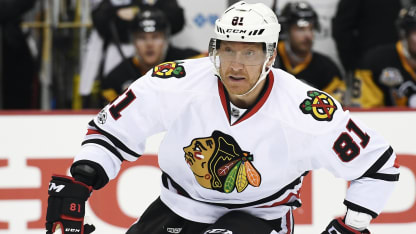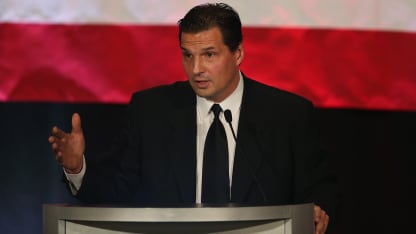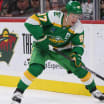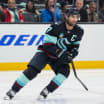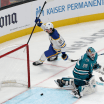We've had some incredible all-around players, but
Marian Hossa
is certainly in the conversation for being a difference-maker, whether or not he had the puck.
That's saying something for a forward. Pat Foley and I talked a lot about it on the broadcast: When an opponent got the puck, he had three options, and all of a sudden here comes 'Hoss' and now Hoss has the option. He just has that uncanny ability to be able to angle and pressure and pursue because of his speed and size. His technique was superior when you put it all together.
Seeing him up close and personal when I was still in the League, then coaching against him when I was in Pittsburgh, then seeing him in Chicago, it was pretty amazing to see the development not only the mental but the physical. He was such a powerful player. He always made players around him better and was somebody to look up to, someone to idolize. You talk about a pro's pro. Very rarely he ever got knocked off his feet and his awareness on the ice was just amazing. It was almost like he was the eyes for the guys that he was on the ice with and never really put himself in any bad spot. He was a cerebral player and it just awesome to watch him night in and night out for as many years.
RELATED: [Hossa's journey to Hall of Fame defined by consistency, reliability]
For Hossa, I think it was the understanding of how important two-way hockey is in success. His athleticism, his skating ability, always allowed him to be able to excel. But just the work ethic and hockey sense and his smarts, that comes from maturity, it really does. It comes from experience and understanding how he's going to be able to make an impact. He evolved as a player that had the wiliness and want to be that 200-foot player.
If he was worried about the offensive numbers and wanted to err on the side of offense, Hoss probably could've picked up another 250-500 points in his career if he chose to conserve more energy on the defensive side and err on the side of aggression instead of knowing that there's a time and a place. So both of the skilled offensive players will always err. Don't get me wrong, you need those guys to win, those guys that play on the offensive side the majority of the time. They're smart enough and skilled enough to take advantage of it. But Hoss was one of those guys who chose to play a certain way and was such an impactful player, and I think that's huge that he could have an impact on the shift, whether he had the puck or not.
